Surviving Houston’s Year-Round Allergy Season: An Acupuncturist’s Guide
Houston, the fourth largest city in the US and renowned food paradise of the south, is also home to some of the most persistent and severe allergy seasons! Our location along the Gulf Coast creates a warm, humid climate that supports an allergy season spanning February to November—nearly 10 months of the year!
On any given day, you will see your car, windows and exterior covered in a fine yellow dust as pollen counts soar. Your eyes will burn, your nose will run, and spending time outdoors can trigger a host of uncomfortable symptoms. The city’s unique allergen profile creates a year-round challenge with distinct seasonal peaks:
- Spring: Tree pollen (oak, pine, ash) blankets the city in that familiar yellow dust we’ve all come to dread. This is when many Houstonians first notice their cars becoming coated overnight.
- Summer: Grass pollen (Bermuda, St. Augustine) takes over as our lawns and parks thrive in the heat. This is particularly challenging for outdoor enthusiasts and those who love summer activities.
- Fall: Ragweed and other weed pollens dominate, often catching people by surprise just when they think they’ve made it through the worst allergy seasons.
- Year-round: Mold spores thriving in Houston’s humidity never really give us a break, constantly circulating in our warm, damp environment.
How Houston Allergies Affect Daily Life
While many long-term Houstonians have grown accustomed to this environment and learned to live with the symptoms, newcomers and visitors often struggle to adjust. Even those of us who’ve been here forever can be caught off-guard during periods of poor air quality, high winds, or when experiencing new or worsening symptoms.
Common Houston allergy symptoms include:
- Sinus congestion and pressure that makes your head feel heavy and foggy
- Frequent sneezing and runny nose that require keeping tissues on hand at all times
- Itchy, watery eyes that make it difficult to wear contacts or makeup
- Scratchy throat that won’t go away no matter how much water you drink
- Fatigue and brain fog that can affect your work performance and quality of life
These symptoms significantly impact our daily functioning, disrupting sleep patterns and reducing productivity. There are times when symptoms are obviously allergy-related, and other times when we forget it’s always allergy season in Houston until those familiar signs return.
Why Traditional Treatments Often Fall Short
Many of us have tried the conventional approach to allergy management through:
- Antihistamines that leave you feeling drowsy
- Decongestants that work initially but seem less effective over time
- Nasal corticosteroids that can cause dryness and irritation
- Allergy shots requiring frequent doctor visits
These traditional treatments can often fall short, not just because of side effects like drowsiness or dry mouth, but because of diminishing effectiveness over time. They address symptoms rather than root causes, creating a cycle of dependency without true resolution. Why continue to just manage symptoms when we can work toward actual healing?
The Traditional Chinese Medicine Perspective on Houston Allergies
From a Traditional Chinese Medicine (TCM) perspective, Houston’s allergy challenges stem from two key pathogenic factors: Wind and Dampness. Understanding these concepts gives us a whole new way to approach allergy treatment.
Understanding Wind in TCM
In TCM theory, wind represents conditions that are rapid, quick in onset, temporary and can be interior or exterior. Interior wind can manifest as an eye twitch, muscle spasm, dizziness, a rash, or a headache. Exterior wind would present like a cold, flu, or certain viruses. Wind can occur in any season and often combines with other pathogenic factors to create complex symptom patterns.
Think of wind as the carrier that brings the allergenic particles to your system – it’s the movement and changeability of symptoms that makes allergies so frustrating to deal with.
Houston’s Humidity: The Dampness Factor
Dampness in TCM is kind of the opposite of wind. It lasts a long time, is hard to get rid of, stagnant, and slow (defined as the inability to transform and transport food as well as water (edema) and phlegm (sticky mucus)). Dampness is frequently associated with the spleen – which is the best friend of the stomach – so in charge of digestion, and can also stem from the kidneys and lungs.
Houston’s notorious humidity creates the perfect environment for Dampness to thrive in our bodies. This explains why our allergies here seem more persistent and harder to shake than in drier climates.
Dampness symptoms often include:
- Brain fog and difficulty concentrating that makes you feel like you’re thinking through mud
- Feeling physically heavy, like you’re dragging your feet when you walk, or finding it hard to wake up in the morning
- Waking unrefreshed, even if you’ve slept a long time
- Joint pain and inflammation that seem worse in humid weather
- Bloating and stomach aches that come and go with no clear pattern
- Incomplete bowel movements, feeling like you are not all the way done when you go to the bathroom. Another way would be having to continuously wipe after going number 2.
The way to treat dampness in TCM is by strengthening the spleen and tonifying or nourishing the kidneys and lungs. Since dampness takes time to treat, lifestyle and diet changes are very important. A sedentary lifestyle will make dampness worse, so movement is key! An easy way to start is walking and building on exercises like bouncing or using a vibration plate for lymphatic flow which can help really get a jump start on getting things moving.
The Importance of Wei Qi: Your Body’s Defense Shield
Wei qi is defined as our defense wall, our immune system’s energy living outside of our body to help guard against outside forces like a cold or a virus. If we have weak wei qi, we have a weak immune system. Protecting our wei qi is of utmost importance in TCM.
We advise patients to always keep a jacket or scarf nearby to protect the back of the neck, where disease enters, at Cervical 7 (where the neck and shoulders meet on the spine). Keep this area covered to protect your immune system, especially if you’re near a draft, to prevent catching a cold. This wei qi protection helps balance restoration and keeps your body’s natural defenses strong during Houston’s challenging allergy seasons!
Comprehensive Allergy Management Through Acupuncture
The best ways to treat wind and dampness are acupuncture, cupping, herbs, essential oils, and modifying dietary changes during times of illness. Eat what your body needs to help it recuperate, don’t exacerbate symptoms by eating fast food or dairy. Give it some good energy with a warm bowl of chicken soup so you can be on the mend faster!
The Scientific Research Behind Acupuncture for Allergies
Modern research has begun validating what TCM practitioners have known for centuries – acupuncture really works for allergies! Here’s what studies have shown:
- Reduced Inflammatory Markers: Studies showed that acupuncture treatments significantly reduced levels of pro-inflammatory cytokines, including IL-2, IL-6, and IL-10, in patients with chronic allergic rhinitis. This explains why many patients report feeling immediate relief after treatments.
- Modulated Immune Response: Research has demonstrated acupuncture’s impact on the immune system. Acupuncture may help strengthen the immune system by boosting the activity of natural defense cells that fight infections. It can also help reduce inflammation by lowering certain immune cells that can cause allergies or excessive reactions. By addressing the underlying immune response, acupuncture keeps the immune system balanced and working properly.
- Improved Nasal Airflow: A randomized controlled trial found that acupuncture significantly improved the quality of life for patients with allergic rhinitis. After eight weeks of treatment, participants experienced noticeable relief from symptoms and reduced their reliance on antihistamines compared to those receiving standard care or sham acupuncture.
These are just a few of the many studies showcasing how acupuncture promotes lasting improvements in your overall well-being, offering a natural and holistic approach to better health. However, if symptoms persist or worsen, it’s always best to consult a healthcare professional for personalized guidance.
Benefits of Acupuncture vs. Conventional Treatments
There are many benefits of acupuncture compared to conventional treatments. Not only can we get rid of symptoms faster, but we can increase immunity with the TCM approach. We work with the body to give it what it needs to become resilient and to recuperate faster, providing you with knowledge for the next time. Take care of your body as it is the only one you have!
Acupuncture offers distinct advantages for Houston allergy sufferers:
- Natural, Drug-Free Approach: No chemical side effects or medication interactions to worry about while still getting effective relief
- Addresses Root Causes: TCM treats underlying imbalances rather than masking symptoms, creating true healing rather than dependency
- Immune System Support: Enhances the body’s natural resilience so you’re better prepared for future allergy seasons
- Minimal Side Effects: Side effects can be feeling groggy after an appointment, an occasional bruise, or sleeping more than usual that night but feeling rejuvenated in the morning – nothing like the drowsiness or dry mouth from antihistamines!
- Cumulative Benefits: Symptoms improve with regular treatments, not just one and done. Your practitioner can talk to you more about what that looks like for your specific situation.
Key Acupuncture Points for Houston Allergy Relief
Face and Head Points
- LI20 (Welcome Fragrance) – Located beside the nostrils, this acupressure point is incredibly versatile. Simply press firmly with your index finger or tap 10-20 times, adjusting based on sensitivity. It’s one of the most widely used points with numerous benefits. I especially love teaching pregnant patients how to use it. In facial massage, this point is key for reducing nasolabial lines and refining the nose’s appearance. Since it’s part of the large intestine channel, it also supports digestion, sinus health, and upper respiratory function. Additionally, it’s a meeting point for many female-related concerns and is commonly used to restore the sense of smell and address nasal issues.
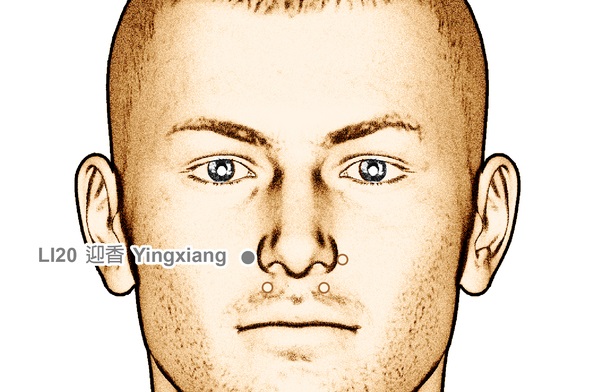
- Yintang (Hall of Impression) – Located between the eyebrows, this point can be particularly sensitive if you’re feeling unwell or dealing with inflammation from illness or allergies. Gently pressing this area can help clear both your mind and your sinuses, providing relief and promoting relaxation.
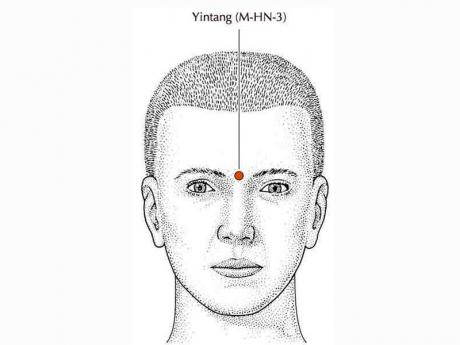
- GB20 (Gates of Consciousness) – Located at the base of the skull, these points are often tight and tender, commonly causing headaches. I personally love pressing them when I feel a headache coming on. With enough pressure, I can sometimes feel my muscles release and even hear a pop in my neck, signaling a reduction in tension. This point is also great for relaxing the shoulders and relieving tension. It’s especially helpful for easing headaches and managing allergy-related discomfort.
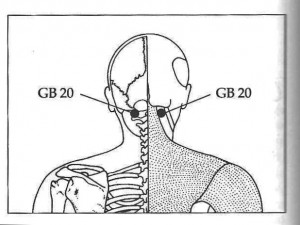
Body Points for Immune Support
Both of these points are on the large intestine channel, making them effective for digestive issues, inflammation, and allergies. Why is this important? Because the gut and brain are closely connected, the digestive system often manifests in the skin and immune system. So, when there are skin issues or immune imbalances, we often look to the gut as the root cause.
- LI4 (Joining Valley) – Located in the web between your thumb and index finger, this powerful point connects to the face and can provide immediate relief when pressed properly.
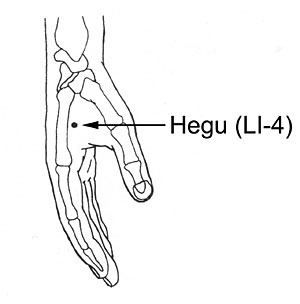
- LI11 (Pool at the Crook) – Found at the elbow crease, this point strengthens immunity and helps clear Heat and Wind from the body, making it especially useful during Houston’s hot allergy seasons.
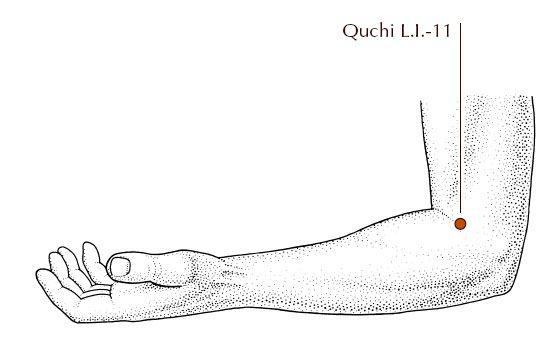
What to Expect During an Acupuncture Session for Houston Allergies
When you come in for an acupuncture session targeting allergies, we’ll start with an initial assessment and create a customized treatment plan. We’ll discuss frequency recommendations specifically tailored for Houston’s unique allergy seasons.
Complementary techniques like cupping or gua sha may be incorporated into your treatment depending on your diagnosis. This also depends on if you have the time as well as the timing of the year. Cupping in the winter is not always a good idea. Just like cupping before a beach trip is not advised as the sun exposure can be harmful for the cupping marks left on your skin.
For acute allergy relief during Houston’s peak seasons, treatments 1-2 times weekly for 3-4 weeks often provide significant improvement. You should feel results from the beginning, but if your condition is chronic, a few treatments will be needed to fully see improvement.
Houston-Specific Lifestyle & Diet Tips for Allergy Management
Local Modifications to Reduce Exposure
- Track Local Pollen Counts: The Allergy Plus by pollen.com app provides real-time allergen data helping you plan your days accordingly. When the app shows high pollen days, consider indoor activities instead.
- Optimal Outdoor Timing: Houston’s pollen counts typically peak between 5:00-10:00 AM. When possible, schedule outdoor activities for afternoon or evening hours, especially during the spring oak pollen season when those yellow clouds are most visible.
- Home Modifications for Houston’s Humidity: Shower after being outside! This will help get the pollen off of you. If there’s no time for a shower, then make sure to change your clothes, wash your hands, and don’t wear your shoes inside your home. Use an air purifier and hospital-grade filters in your AC. Check the weather and plan accordingly.
- After Outdoor Exposure: Change your clothes when getting home or, again, shower immediately when you arrive. This simple step can dramatically reduce your continued exposure to allergens that hitch a ride on your clothing and hair.
Dietary Recommendations for Houston’s Climate
Foods to Minimize During Allergy Season
Cutting out foods that are considered heavy can make a big difference during allergy season. These include dairy, tropical fruits like mango and banana, nightshades (tomatoes, eggplant, etc.), as well as gluten and pork. These foods can increase dampness in the body and make your allergy symptoms feel worse.
Foods to Incorporate for Allergy Relief
Increasing your intake of foods like pumpkin, radish, asparagus, kidney beans, daikon, and lemon can help combat dampness. Fish like mackerel and spices such as garlic, basil, oregano, and parsley support your body’s natural ability to clear congestion and reduce inflammation naturally.
Complementary Home Approaches for Houston Allergies
- Nasal Irrigation: Regular nasal irrigation with clean, purified water (not tap water) can make a world of difference. A simple neti pot can do the trick! There are fancier equipment options available nowadays, but the basic technique works wonderfully to flush allergens from your nasal passages.
- Essential Oils for Houston’s Climate: Eucalyptus, peppermint, lemon, and tea tree oils can be especially helpful in our humid environment. You can use these in a diffuser or as part of a steam inhalation to help clear congestion.
- Stress Reduction Techniques: Try tapping the acupressure points we discussed earlier. Breathing exercises indoors, as well as yoga or meditation, can significantly reduce your body’s inflammatory response to allergens. Anything that can reduce inflammation markers would be great too – exercise indoors, lymphatic massage, or gentle movement practices.
Creating Your Houston Allergy Action Plan
Seasonal Treatment Calendar for Houston
Planning ahead can make a huge difference in how you experience Houston’s allergy seasons. A comprehensive, integrative approach with acupuncture and working with your allergist or ENT is a great idea. Creating a Houston-specific seasonal treatment calendar will help with preventative approaches for future allergy seasons.
Consider planning vacations during peak allergy times if possible, or make sure to schedule more indoor activities during the worst weeks. Acupuncture and TCM are highly recommended during allergy season, as well as preventative pre-season acupuncture protocols. We can ramp up the immune system to be ready to tackle those incoming allergies!
Once to twice a week would be a great start to any treatment when peak season hits. This approach works wonderfully for both children and adults, providing relief and building resilience over time.
Take Control of Your Houston Allergy Experience
Don’t let Houston’s year-round allergy challenges diminish your quality of life. With a comprehensive TCM approach, you can build resilience that goes beyond symptom management to create true, lasting relief.
Schedule a consultation today for a customized allergy relief plan specifically designed for Houston’s unique climate challenges. We’ll work together to not just manage symptoms, but to strengthen your body’s natural defenses against our challenging environment!ebook so be sure to stay connected and let’s all have a healthy, happy life!

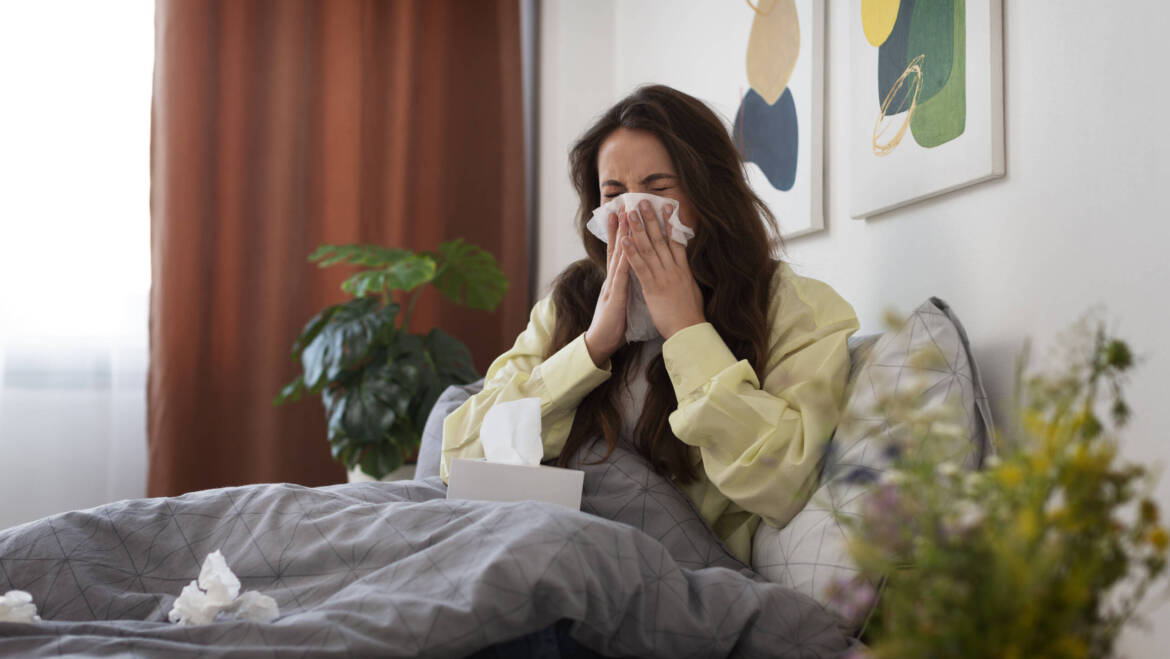
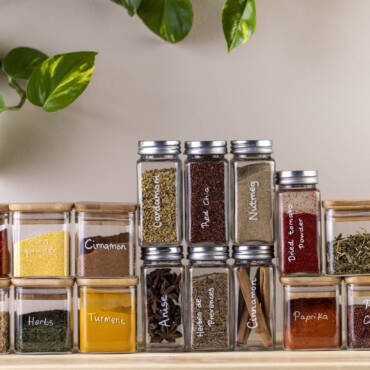
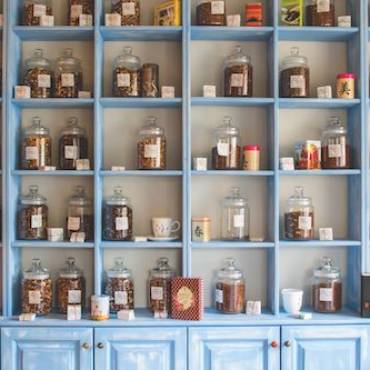
Add Comment